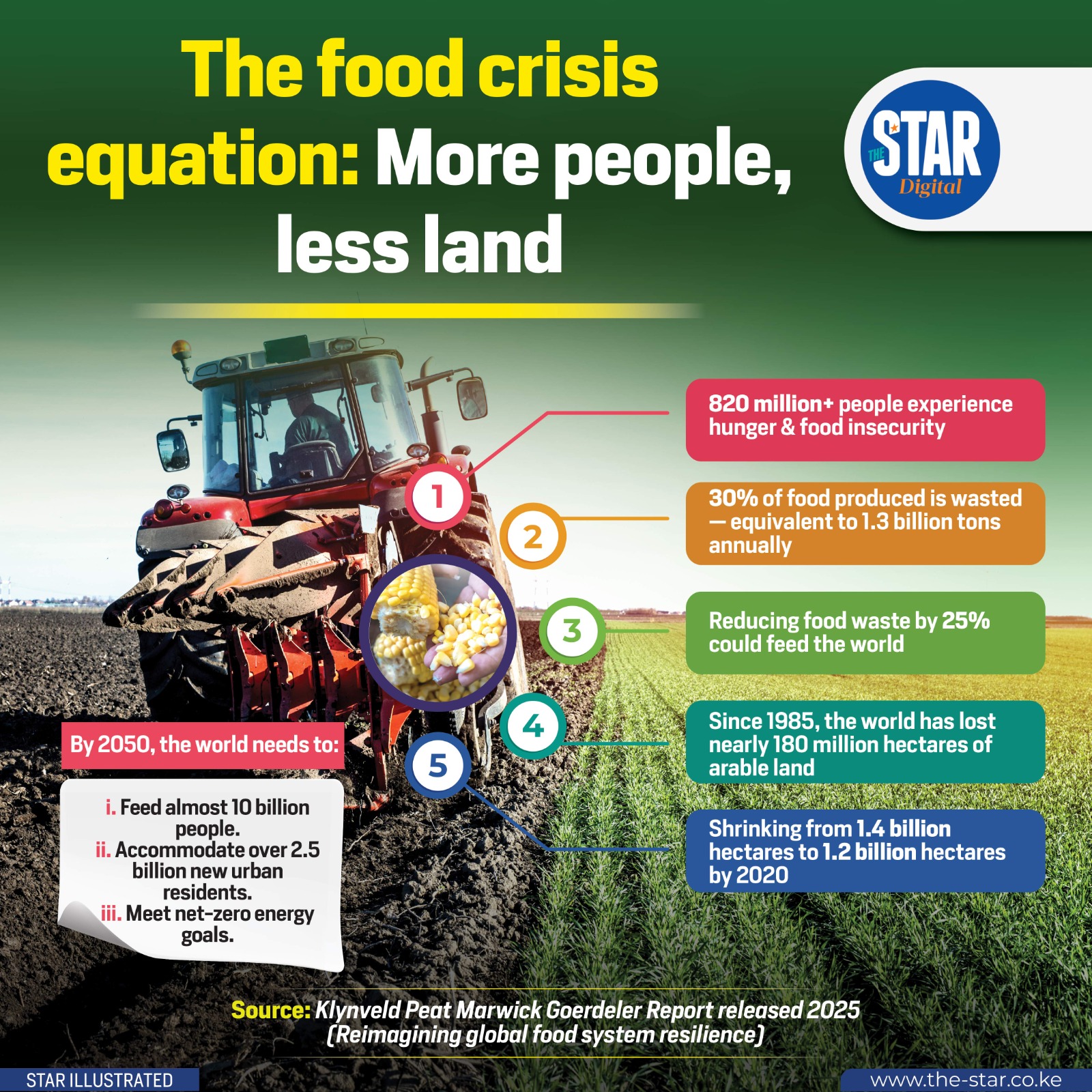
The global food crisis is characterised by a growing population and a shrinking amount of arable land. Currently, over 820 million people worldwide experience hunger and food insecurity. A major contributing factor is food waste, with 30% of all food produced being lost annually, an amount equivalent to 1.3 billion tons. Reducing this waste by just 25% could be enough to feed the world's hungry. The problem is compounded by a continuous loss of land; since 1985, the world has lost nearly 180 million hectares of arable land. This is reflected in the shrinking of total arable land from 1.4 billion to 1.2 billion hectares by 2020. By 2050, the world will need to feed almost 10 billion people, accommodate over 2.5 billion new urban residents, and meet net-zero energy goals, a challenge that highlights the urgency of addressing the food crisis.


















